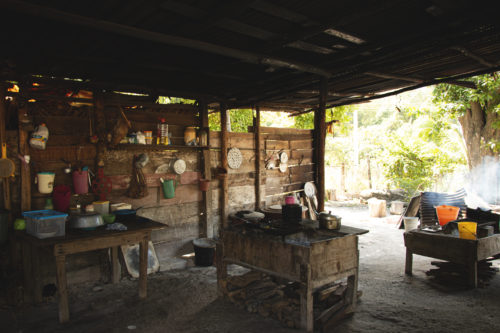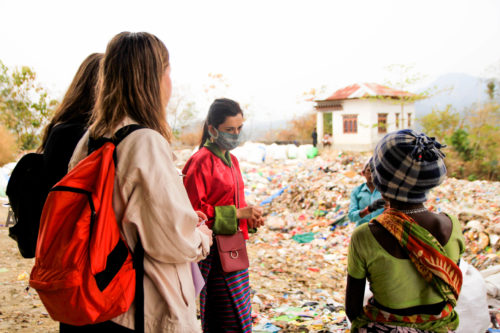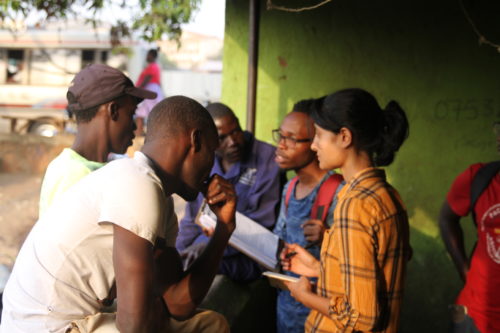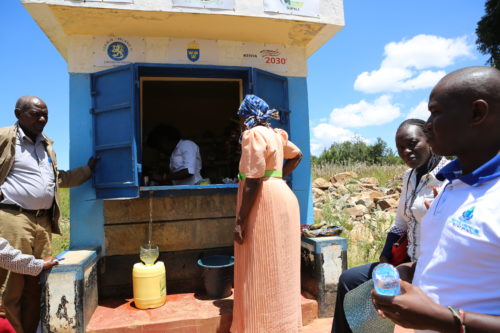”SGT focuses on sustainable technologies, urbanization, development, environmental, cultural and societal impacts in developing and transition countries.” This spring, the Sustainable Global Technologies Studio runs projects in four locations: Kenya, Uganda, Bhutan and Mexico. In this blog post you’ll find out the latest greetings from the projects.
Sustainable Global Technologies is a multidisciplinary program run in the Water and Development Research group. The program consists of 3 courses, the SGT Studio being a flagship course aiming to teach the students about the systemic role of sustainability and technology in the state of the world and development. The course provides the students with real life project work experience in low-income country context. All projects are carried out with partnering organizations that provide the teams with a tentative project idea. The students are selected from three disciplines: engineering, business and arts to create a team with a diverse skill set, and mentored by experts with relevant experience as well as methodological and substance knowledge in similar contexts.
Project topics vary, usually tackling issues such as sustainable water supply and waste management as well as enhanced community housing, livelihoods and capacity building. While the SGT course runs from January to May, a field trip to the project country marks the highlight of the spring. During the spring, the 2020 project teams travelled to Mexico, Bhutan, Uganda and Kenya:
El 20 team continues the work of previous years of Aalto LAB Mexico. This year the team focuses on income stabilization and awareness raising regarding gender equality. The team approaches these themes through promoting and utilizing Mayan cooking traditions to create “a communal ownership of the La Casita building(s)” in Calakmul, Campeche, Mexico. This year’s team is formed by five students from anthropology, architecture, geography, engineering and design. Follow the team @el20journey on Instagram and https://aaltolabmexico.wordpress.com/.

Studio Sajo 2020 works to support the development of sustainable waste management in Samdrup Jongkhar, Bhutan. Being part of the PBL South Asia, the team collaborates with the Royal University of Bhutan. During the course, the team aims to deliver “workshops, a co-designed waste management approach and a final manual with recommendations” to increase awareness and education about waste management practices. The team’s packing list to Bhutan included personal entertainment items, pickles or condiments and wet wipes among others. Follow @studiosajo on Instagram to find out more.

Project Amaka works on the PBL East Africa project in Kampala, Uganda. The SGT team consists of five students from Aalto and six students from Makerere University. Project Amaka (: Luganda for home) focuses on housing upgrading in Katanga slum. The project builds on “a conceptual modular housing unit (Emu-ku’emu or ‘one- on-one’) seeking to improve living conditions within the slum” developed by the Makerere team. The team aims to identify different patterns of water usage, cost and water sensitivity in the context of Emu-ku’emu concept and Katanga slum. Follow the team @project_amaka on Instagram.

SuWaMa 2020 continues the work of the SGT WatBus team in 2018. Assigned by the Water Sector Trust Fund based in Nairobi the team works to draft financial sustainability action plans for six utilities in three counties in rural Kenya. Besides successful workshops, their fieldtrip in Kenya was not without technical mishaps: “But the unexpected bits are what really made everything a bit brighter. It started with a flat tyre on one car on the highway. You may think this is unfortunate, until you see the view from where we stopped: As we looked out at the Great Rift Valley from 2,500 metres above sea level, any worries about the flat tyre were distant. What made the incident of the first flat tyre slightly hilarious, was the incident of the second flat tyre. It was the exact same spot of the car – the changed tyre had flattened.”. Follow the team’s progress here: https://www.suwamakenya.com/ and @suwama_project on Instagram.

All four projects present their final outputs in May. Follow updates on the website sgt.aalto.fi and @aalto_sgt on Instagram.
Previous students have described the course as follows:
“My experiences with SGT Tanzania provided invaluable insight into field work in a developing context and strengthened my motivation to work with these themes in the future.”
“I had traveled in developing countries before, but the SGT course showed me what the country is like beyond what tourists ever get to see. Additionally, the important lessons I learned in project and group work are hard to get on any other course.”
SGT courses are open for all Master’s and Doctoral level students to apply. Courses are starting in autumn period I.
MSc (tech.) Venla Niva works as a DSc researcher in Water and Development Research Groups. Her research focuses on the interplay between environmental and socioeconomic drivers behind human migration and urbanization. She also works as a mentor and teaching assistant in the SGT program.
For citations see the following sources:
SGT-programme: sgt.aalto.fi
Kenya: https://www.suwamakenya.com/
Uganda: Project Amaka, Project Document, 2020, available upon request.
Bhutan: Studio Sajo, Project Document, 2020, available upon request.

